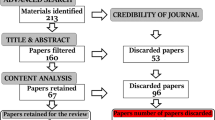Abstract
The composting industry depends on sampling and analytical test methods borrowed from allied industry sources. These sources include assorted solid waste management, water and wastewater management, and the soil, peat, food, feed and fertilizer industries. Under these circumstances, users in the composting industry have modified and adapted test methods to suit a variety of conditions. It is not unusual to have differing interpretations of test results, to disagree on test application suitability, or to substitute one test for another even without demonstrated correlation among tests. A common set of standards for consistent and reliable testing by compost producers, marketers, users, researchers and regulators, and for their clients, does not exist.
The Composting Council’s Standards and Practices Committee undertook a long-term project to develop a standard set of sampling and test methods for composting feedstocks, composting and compost. The first step of the project was undertaken in cooperation with the Minnesota Office of Environmental Assistance, and the University of Minnesota Agricultural Extension Center, Research-Extension Analytic Laboratory. The United States Department of Agriculture (USDA), Agriculture Research Service, Beltsville, MD, has joined in this effort. Numerous other Agricultural Extension Centers and independent laboratories will become engaged during the introduction, peer review and acceptance process. The initial set of about 40 laboratory tests undertaken in Minnesota is expanding, along with sampling procedures, with the help of more laboratories.
The sampling and test methods being documented are suitable for several uses. Some methods are “quick tests” for composting process monitoring and control, and for approximation of product attributes. Other more rigorous and laborious tests are for regulatory compliance, product safety and data for product marketing claims.
The First Edition of Test Methods for the Examination of Composting and Compost was released in December 1997 by the Standards and Practices Committee for introduction, familiarization and comments, and for solicitation of additional methods. A subsequent step will involve team evaluations of methods, and agreement. The USDA plans to follow this step with greenhouse and field testing to help evaluate different tests for the same compost attribute, and correlate compost attribute measurements to growth response. The concluding step is a proposed joint long-term effort with a recognized national standards-setting organization to standardize the protocols, and insure for their vitality.
Access this chapter
Tax calculation will be finalised at checkout
Purchases are for personal use only
Preview
Unable to display preview. Download preview PDF.
Similar content being viewed by others
Author information
Authors and Affiliations
Editor information
Editors and Affiliations
Rights and permissions
Copyright information
© 1998 Springer Science+Business Media Dordrecht
About this chapter
Cite this chapter
Leege, P.B. (1998). Introduction of Test Methods for the Examination of Composting and Compost. In: Brown, S., Angle, J.S., Jacobs, L. (eds) Beneficial Co-Utilization of Agricultural, Municipal and Industrial by-Products. Springer, Dordrecht. https://doi.org/10.1007/978-94-011-5068-2_22
Download citation
DOI: https://doi.org/10.1007/978-94-011-5068-2_22
Publisher Name: Springer, Dordrecht
Print ISBN: 978-94-010-6128-5
Online ISBN: 978-94-011-5068-2
eBook Packages: Springer Book Archive




